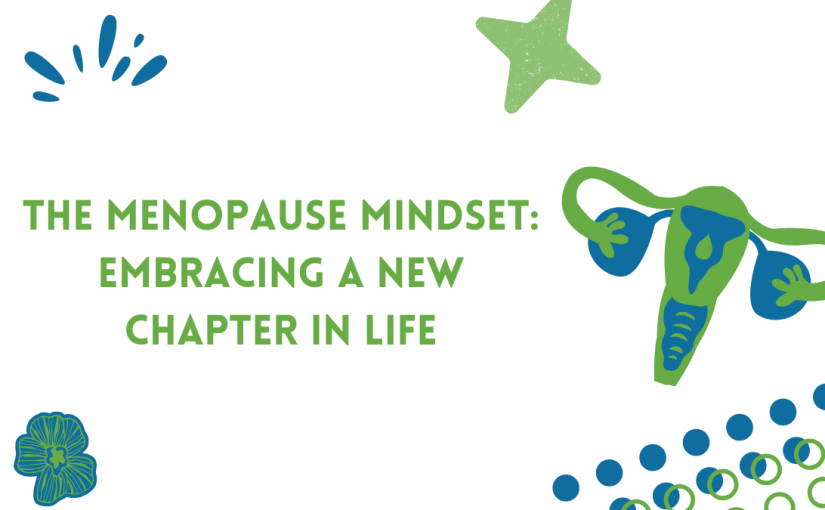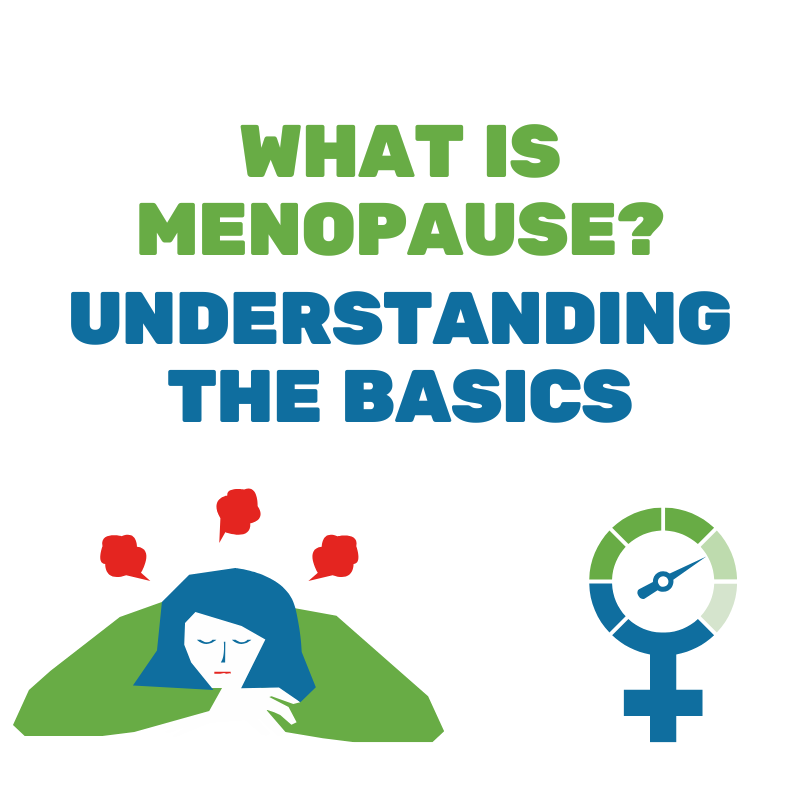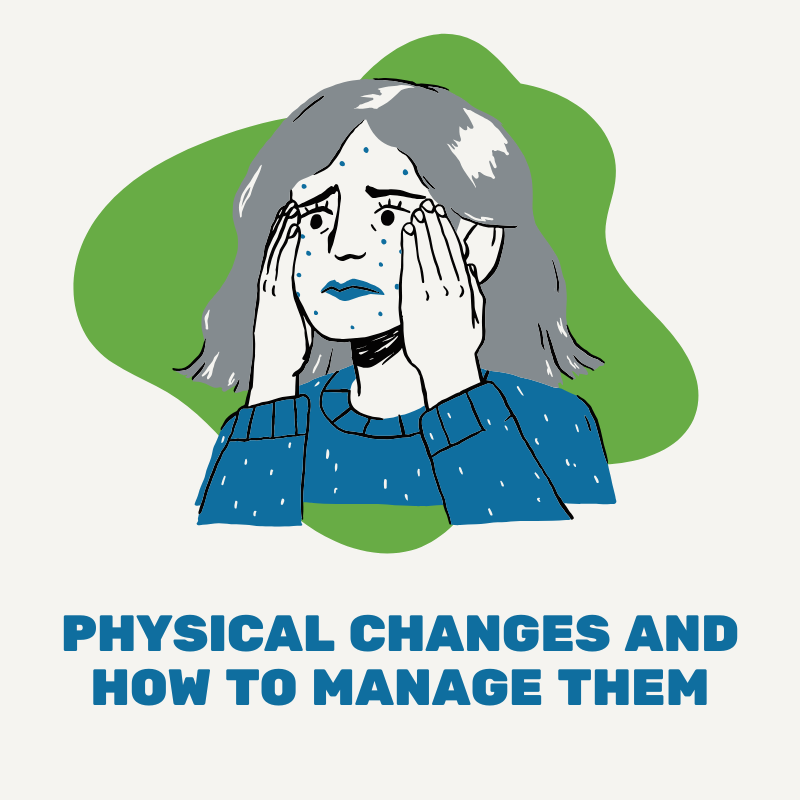The Menopause Mindset: Embracing a New Chapter in Life
Menopause is an uncomfortable topic of discussion for many women, and having a harsh stigma around it may further lead to an unpleasant experience of a new chapter of life.
In this blog, we will be discussing menopause—its physical and emotional impact, ways to manage menopause symptoms, menopausal nutrition, and what mindset to have about it. We encourage all women out there to accept menopause as their life part and not as some kind of illness or a life phase to be ashamed of.
What is menopause? Understanding the Basics
Menopause is that phase of life in a woman when she ceases to have menstrual periods for consecutive 12 months and has lost her ability to childbearing.
The time before menopause is known as menopausal transition or perimenopause, and this happens usually when a woman is in her 40s, or maybe younger. It may last for several years. During this phase, a woman’s ovaries produce fewer mature eggs, ovulation happens irregularly, and the estrogen/progesterone hormone levels drop.
The time that follows menopause is known as postmenopause. This phase continues throughout the rest of a woman’s life. Some menopausal symptoms may even be experienced during this time.
Menopause is naturally inescapable. It can even be induced through surgery or medical treatment.
The Emotional Rollercoaster: Mood Swings
The decline in estrogen and progesterone hormone levels during menopausal transition and menopause has many aftermaths, including rollercoaster emotional changes like:
- Mood Swings
- Anxiousness
- Extreme tiredness (fatigue)
- Forgetfulness and difficulty concentrating
- Loss of self-esteem and confidence
- Extreme sadness or upset feeling
- Anger or irritability.
Physical Changes and How to Manage Them
The hormonal changes in menopause can affect the physical and social well-being of a woman, besides emotional and mental health. The physical changes include:
- Abnormality in menses: There could be shorter or longer menstrual cycles; heavy or light menstrual flow; or irregular periods. Hormone replacement therapy (HRT); low-dose oral contraceptives; use of heating pads; and non-steroidal anti-inflammatory medications can help manage menstrual irregularities.
- Hot flashes and night sweats: Suddenly, the face, neck, and chest feel warm and cause sweating. This is called a hot flash. When this happens at night, it is referred to as night sweats. Doctors may prescribe medicines like antidepressants, medications that control hot flashes, anti-seizure medications, and blood pressure medications, or else hormone replacement therapy to treat hot flashes and night sweats.
- Difficulty sleeping: There could be trouble falling asleep, and the lack of proper sleep could further result in fatigue and memory issues. Cognitive behavioral therapy (CBT) is a talk therapy that can help menopausal women get better sleep. Sleep problems can even be addressed with certain medications, like antidepressants and antiseizure medications.
- Vaginal dryness: The vagina is less lubricated and may lead to painful sexual intercourse. Doctors may prescribe water-based lubricants or hormone replacement therapy to relieve vaginal dryness and prevent painful sexual intercourse.
- Bladder problems: These include urinary tract infections or urinary incontinence. Medications can provide relief from these health issues.
- Loss of bone density: The bone density may decline and eventually cause osteoporosis. Medications and hormone replacement therapy are prescribed to help prevent or treat osteoporosis.
- Increase in cholesterol levels: There is a higher risk of heart attack or stroke due to a rise in blood cholesterol. A healthy lifestyle shift along with cholesterol-lowering drugs can reduce the risk of cardiovascular disease.
Nurturing your Mental Health During Menopause
During menopause, women face lot many mental health challenges like anxiety, depression, memory problems, low self-esteem/confidence, low concentration/brain fog, low energy levels, and mood swings.
Many factors can impact mental health at the time of menopause. These include:
- Changes in hormones
- Changes in appearance
- Physical discomfort
- Grief or regret of looking old
- Transition from reproductive life phase to older adult and pressures that come along
- Negative menopause mindset or beliefs about menopause and its symptoms.
Here are some strategies that women should follow to be proactive about nurturing their mental health during menopause:
- Practice stress-relieving techniques. Activities that can help women manage stress include yoga, meditation, having a massage, journaling, or listening to soothing music.
- Keep note of fluctuating moods. It is advised to keep track of your mood when it is getting affected, like with stress or sleep. Ask people next to you whether they are seeing changes in your mood.
- Focus on healthy lifestyle habits. Eat a healthy diet, be physically active, and quit smoking.
- Maintain a good sleep routine. Practice sleeping at the same time every night and waking up at the same time with enough hours of rest. Make sure that before bedtime, you take no large meals or caffeine and have no screen time. Moreover, you keep your bedroom dark, quiet, and relaxing.
- Talk with others about menopause and its impact on you. It’s important to have a good menopause mindset, or else your thoughts could make you afraid and embarrassed. The emotional distress can further intensify your physical discomfort. Those who have gone through the same can help generate helpful thoughts during menopause. So, there is no need to set off on the journey through the menopausal transition all alone. You can talk about it with your friends, family, and community members and even get support on online forums.
- Speak to a mental health specialist or doctor. If mental health challenges are interfering with your daily life, you should seek medical attention. There is cognitive behavioral therapy and certain medications that can help.
Nutrition for Menopausal Woman
At the time of menopause, estrogen hormone levels drop, which slows the body’s metabolism, and so menopausal women are more likely to gain weight. To avoid this from happening, women are recommended to go for some dietary changes.
Here’s what must be included in the diet plan:
- Calcium-rich foods like milk, cheese, canned fish, leafy green vegetables, and yogurt
- Vitamin D-rich foods like tuna, mackerel, and salmon fishes
- Protein-loaded foods like legumes, beans, Greek yogurt, and eggs
- Dietary fiber-rich foods like cucumber, tomatoes, and salad greens
- Healthy fat-containing foods like flax seeds, chia seeds, fatty fish, and avocados
- Menopausal women must limit or avoid intake of processed foods, fatty and sugar/salt-loaded foods, caffeine, and alcohol.
The Bright Side: Rediscover Yourself
As you approach menopausal transition or menopause, you should recognize and discuss it with less stigma. You should look into the brighter side of having menopause rather than having negative thoughts about it.
As per research and personal experiences of women experiencing menopausal transition or menopause, here are some positive changes associated with menopause:
- No more menstrual cycles and related problems
- A sense of sexual freedom—to have sex without risk of pregnancy
- Start of new life chapter, more self-time and attention to personal growth
- A new sense of liberation further boosts self-confidence.
It can be hard to think about the next phase of life with menopausal symptoms, but you need to work towards having a positive mindset and embrace your new chapter of life.
FAQs
The transition from perimenopause to menopause phase in women occurs at different ages, typically between ages 45 and 55. The average age of onset of menopause is 52 in the United States and may be lower in other countries.
No. Menopause is an inescapable natural phenomenon experienced by every female. Its symptoms can’t be avoided but can be reduced or managed while minimizing or preventing long-term health issues. The self-measures include having a well-balanced diet, doing regular exercising, sleeping well, managing blood pressure, cholesterol, and sugar levels, maintaining good bone strength, and reducing stress.
During menopause, estrogen levels decline, and so there is an increased risk of cognitive decline, cardiovascular disease, osteoporosis, bladder problems, and vaginal issues.
You can consider hormone replacement therapy, estrogen or estrogen combined with progesterone, if you are experiencing menopausal symptoms (vaginal dryness and hot flashes) or want to avoid the risk of osteoporosis.
No. Weight gain experienced at the time of menopause is often because of lifestyle changes, diet, and aging and not due to menopause itself. Menopausal women can avoid weight gain by staying active, eating healthily, having more dietary fiber and proteins in their diet, and taking estrogen therapy.
References:
- What is menopause? Understanding the Basics
- Changes associated with menopause
- Lifestyle changes
- Nurturing your Mental Health During Menopause
For more informational blogs, visit here.



